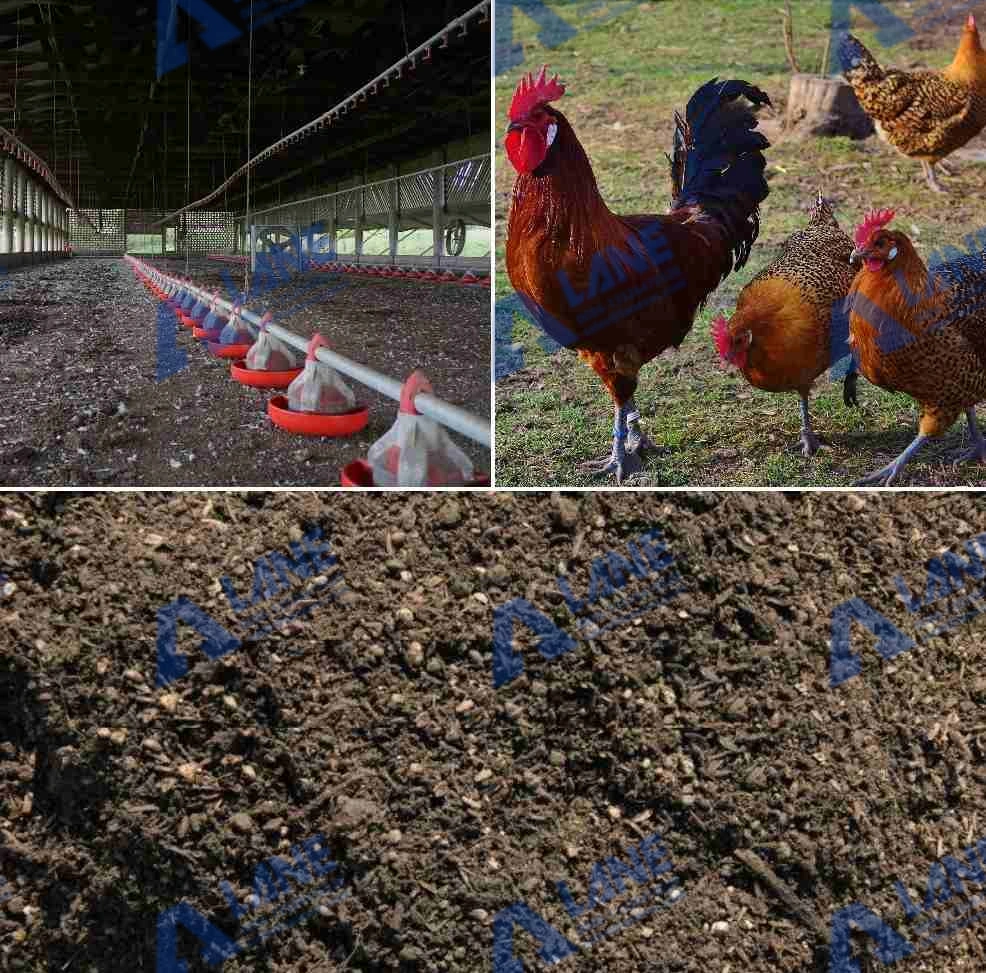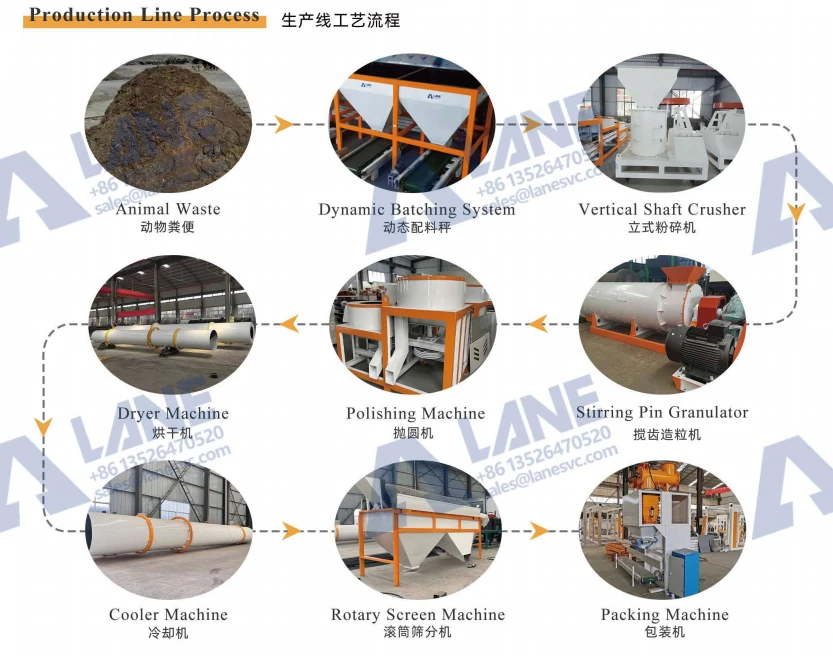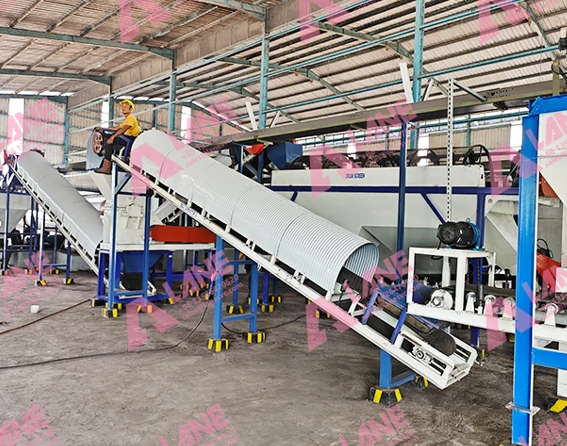For centuries, chicken manure fertilizer has been recognized as one of the most abundant and effective organic soil conditioners available to farmers and gardeners. Historically, it was valued for its naturally high levels of nitrogen, phosphorus, and potassium—nutrients essential for healthy plant growth. Long before synthetic fertilizers existed, poultry manure played a key role in maintaining soil fertility, improving structure, and supporting abundant harvests. In traditional farming, its application was straightforward but often messy, with minimal processing or control over nutrient release.
In modern agriculture, chicken manure fertilizer has undergone a remarkable transformation from a raw, odorous by-product into a carefully processed, nutrient-rich agricultural input. Advanced composting, granulation, and drying techniques now make it cleaner, safer, and more convenient to use, minimizing pathogens and odors while maximizing nutrient availability. Beyond simply boosting crop yields, it supports sustainable farming by recycling waste, reducing the dependence on chemical fertilizers, and improving long-term soil health. With innovative processing solutions, companies like LANE help farmers convert poultry waste into a profitable, eco-friendly resource that aligns with both environmental regulations and market demand.
What is Chicken Manure Fertilizer?
The core of chicken manure fertilizer is the decomposed or processed excrement of poultry, which is rich in nitrogen, phosphorus, potassium and various other essential trace elements for plant growth. Unlike synthetic fertilizers, chicken manure can not only release nutrients immediately but also improve soil structure over a long period of time. Therefore, it is highly favored by organic farmers.
Typical nutrient composition of dried chicken manure:
| Nutrient | Average Content (%) |
| Nitrogen (N) | 4.0 – 6.0 |
| Phosphorus (P₂O₅) | 3.0 – 4.5 |
| Potassium (K₂O) | 1.5 – 3.0 |
| Organic Matter | 60 – 70 |
The high nitrogen content makes it especially effective for leafy vegetables, forage crops, and cereals, but proper handling is essential to prevent nutrient loss and odor issues.

Why Chicken Manure Fertilizer Outperforms Many Alternatives
Chicken manure fertilizer has earned a strong reputation in sustainable agriculture for its high nutrient density, soil-improving properties, and cost-effectiveness. Compared to synthetic fertilizers or other organic sources, it delivers a balance of nitrogen, phosphorus, and potassium (NPK) along with essential micronutrients that crops need for optimal growth.
2.1 Higher Nutrient Density than Many Organic Options
Unlike cow or horse manure, which tend to have lower nitrogen content, chicken manure is nutrient-rich. On average, dried chicken manure contains:
Nitrogen (N): 3–5%
Phosphorus (P₂O₅): 2–4%
Potassium (K₂O): 1–3%
This means farmers can apply less material to achieve the same or better crop results compared to alternatives like composted cow manure or green waste compost.
2.2 Balanced Nutrient Release for Sustained Growth
Chicken manure fertilizer offers both fast-release nutrients for immediate plant growth and slow-release organic matter for long-term soil health. This dual action reduces the need for frequent applications and helps maintain soil fertility over multiple seasons.
2.3 Superior Soil Structure Improvement
Apart from NPK, chicken manure adds valuable organic matter to the soil. This improves water retention, aeration, and microbial activity. Over time, soils treated with chicken manure become looser and more friable, promoting healthier root systems.
2.4 Cost-Effectiveness & Local Availability
In many poultry-farming regions, chicken manure is an abundant by-product. When processed into market-ready chicken manure fertilizer using professional production lines, it becomes a high-value agricultural input with significantly lower production costs than chemical fertilizers.
2.5 Environmentally Friendly Choice
Processing poultry waste into fertilizer prevents harmful runoff and greenhouse gas emissions associated with raw manure disposal. This aligns with sustainable farming practices and environmental regulations in many countries.
The Journey from Raw Poultry Waste to Market-Ready Fertilizer
Transforming raw poultry waste into high-quality chicken manure fertilizer is a multi-stage process that ensures safety, nutrient retention, and market readiness. Below is a clearer breakdown of each stage with the corresponding equipment involved.
Step 1: Collection & Initial Storage – Manure Reception System
Fresh chicken manure is collected from poultry farms and temporarily stored in a designated reception area. LANE’s manure reception systems are designed to handle large volumes efficiently, preventing nutrient loss and odor emissions during storage.
Step 2: Pre-Treatment & Solid-Liquid Separation – Solid-Liquid Separator Machine
The moisture content of fresh chicken manure can be excessively high, often above 70%. Using a solid-liquid separator, the excess liquid is removed, reducing moisture to an optimal level for composting while retaining essential nutrients.
Step 3: Pathogen & Odor Control – Fermentation Compost Turner
Composting is a crucial step to kill harmful pathogens and eliminate foul odors. LANE’s wheeled compost turners or groove type compost turners provide thorough aeration, maintaining the right temperature (55–65°C) and oxygen levels to accelerate decomposition.
Step 4: Fine Crushing for Uniformity – Fertilizer Crusher Machine
After composting, the material is processed through a fertilizer crusher to break down clumps and ensure a fine, consistent texture, preparing it for granulation.
Step 5: Granulation – Chicken Manure Granulator
Using a flat die granulator or rotary drum granulator, the composted manure is shaped into uniform fertilizer pellets. Pelletizing improves product handling, reduces dust, and enhances nutrient release efficiency.
Step 6: Drying & Cooling – Fertilizer Drying and Cooling Line
Pellets are dried in a rotary drum dryer to remove excess moisture, then cooled using a rotary cooler to stabilize the product, preventing clumping during storage.
Step 7: Screening & Grading – Rotary Screening Machine
The cooled pellets are screened to separate oversized and undersized particles. The screened product ensures uniform size and better market acceptance.
Step 8: Packaging & Storage – Automatic Fertilizer Packaging Machine
LANE’s automatic packaging lines weigh, bag, and seal the final chicken manure fertilizer efficiently, ensuring a professional presentation ready for distribution.

Application Methods for Maximum Effect
Chicken manure fertilizer delivers the best results when applied with a clear understanding of crop needs, soil conditions, and timing.The correct application method can ensure the maximum absorption of nutrients while minimizing waste or environmental impact.
Broadcast Application
For large-scale field crops, application refers to spreading chicken manure fertilizer evenly over the soil surface. This method is very suitable for use before plowing or turning the soil, allowing the nutrients to fully mix with the top layer of soil. Farmers usually combine the use of a rotary tiller or a disc harrow to quickly mix the fertilizer and prevent nutrient loss.
Row Application
Applying chicken manure fertilizer directly to the planting rows ensures that the nutrients are concentrated in areas where the plant roots can absorb them immediately. This is particularly beneficial for vegetables with high nutrient requirements such as corn, peppers, and tomatoes. This technique is usually carried out using granular fertilizer applicators or precision seeding machines, which help to control the dosage and reduce waste.
Top Dressing
For perennial crops and mature plants, topdressing refers to spreading chicken manure fertilizer around the base of the plants during the growing season. This can stabilize the supply of nutrients without interfering with the root system. Topdressing is widely used in orchards, vineyards, and home gardens, and is usually combined with irrigation to accelerate nutrient absorption.
Integrating with irrigation system
Some farms dissolve composted chicken manure into water for fertigation—feeding crops through irrigation systems. This allows precise control of nutrient delivery and reduces labor costs.
Case Study: A Coastal Vegetable Farm Boosts Yields with Chicken Manure Fertilizer
In 2023, a mid-sized vegetable farm located along the southern coast decided to replace synthetic fertilizers with high-quality chicken manure fertilizer. Their goal was to reduce input costs, improve soil health, and appeal to eco-conscious consumers.
Salty coastal air and sandy soils made it difficult for the farm to retain nutrients. Chemical fertilizers provided quick growth but left the soil depleted and dependent on constant external inputs.
The farm invested in a LANE chicken manure granulation line, allowing them to process poultry waste from a nearby chicken farm into odor-controlled, nutrient-rich pellets. These pellets were easier to store, transport, and apply than raw manure.
The Results:
Yield Increase: Tomato yields rose by 18%, while leafy greens like spinach and lettuce grew faster with richer color.
Soil Health Improvement: Organic matter content increased by 12% in one year, reducing the need for irrigation.
Market Advantage: The farm marketed its produce as “grown with sustainable poultry-based fertilizer,” winning over health-conscious customers and securing better wholesale prices.
This success story shows how chicken manure fertilizer can be both a cost-saving tool and a branding advantage in competitive agricultural markets.

LANE’s Advantages in Chicken Manure Fertilizer Processing
When it comes to chicken manure fertilizer production, not all equipment is created equal. LANE has developed integrated solutions that focus on efficiency, durability, and environmental compliance.
Customizable production line: LANE offers customized chicken manure processing lines based on the farm size, manure volume and final product target quantity. From the composting machine to the granulator and the automatic packaging system, every step has been optimized to ensure seamless operation.
Odor and pathogen control: The high-temperature composting system developed by LANE can neutralize harmful bacteria and reduce odors, while meeting agricultural safety standards and community environmental regulations.
Energy conservation and cost reduction: The LANE equipment uses low-energy motors and an optimized drying system, reducing operating costs without compromising performance. For farms dealing with large amounts of manure, this means saving thousands of dollars each year.
After-sales support and training: LANE not only sells equipment, but also ensures that farmers understand how to maximize the efficiency of the equipment. From installation supervision to practical training, their technical team is always available to provide maintenance and upgrade services.
Frequently Asked Questions About Chicken Manure Fertilizer
Q1: Can fresh chicken manure be applied directly to crops?
A: Not recommended—it can burn plants due to high ammonia and nitrate levels. Compost or process it first.
Q2: How long can chicken manure pellets be stored?
A: When dried below 15% moisture and stored in a cool, dry place, pellets can last up to 2 years without losing quality.
Q3: Is chicken manure fertilizer safe for organic farming?
A: Yes, when processed properly, it complies with most organic certification standards.
With the push towards carbon reduction and regenerative farming, chicken manure fertilizer is set to play an even bigger role. Advances in drying, pelletizing, and odor control technology mean more farms can turn poultry waste into a stable, transportable, and marketable product. LANE is at the forefront of these innovations, helping farmers and agri-businesses close the loop between livestock production and crop nutrition—creating healthier soils, higher yields, and a cleaner environment.
For more details, please feel free to contact us.
Henan Lane Heavy Industry Machinery Technology Co., Ltd.
Email: sales@lanesvc.com
Contact number: +86 13526470520
Whatsapp: +86 13526470520